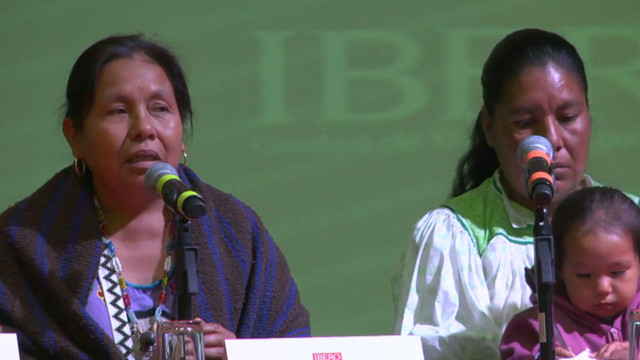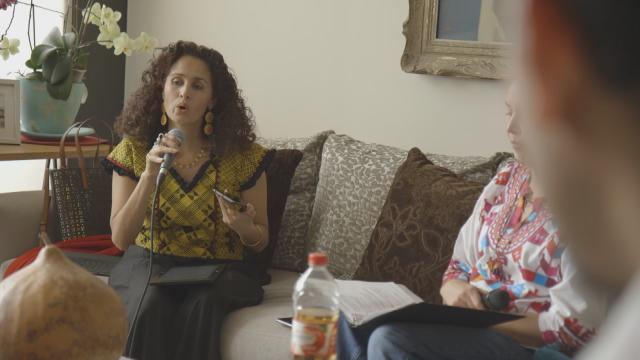In Mexico, voters will have an unexpected choice when they cast their ballots for president. For the first time, an indigenous woman is running for president, backed by the rebel Zapatista movement. She joins a growing list of presidential hopefuls bucking established political parties.
CGTN’s Alasdair Baverstock reports from one of her rallies.
A native Nahua healer, long-time supporter of Zapatista rebellion, and a renowned spokesperson for Mexican indigenous rights, Maria del Jesus Patricio Martinez is the country’s first-ever indigenous female presidential candidate.
“We have seen that the problems faced by the indigenous and the impoverished across Mexico are the same. But the political system seeks to divide us,” the candidate better known as ‘Marichuy’ said. “Our leaders have brought only destruction and division, and we will fight to bring a better way.”
Espousing socialist principles, she chose one of the country’s top universities for her first Mexico City campaign rally, seeking the approval of students. Many of them are first-time voters.
“For many years the indigenous have been used to win votes with false promises, so it’s great to see a candidate emerge from one of their own,” student Hector Cervantes said. “She’s a ray of hope for the future of Mexico.”
Marichuy is a leading figure in the Mexican Indigenous Council, a political body representing the rights of those it calls Mexico’s “original people.” Indigenous people make up nearly one-fifth of Mexico’s population, yet many say they feel invisible.
“We feel ignored,” Patricia Moreno of the Nahua People said. “Hopefully through this campaign we can remind our country that we are here, and that our voice can be heard.”
Marichuy, however, still has a long way to go before she can compete against the country’s political heavyweights. One of at least 86 independent candidates, she’s required to gather more than 850,000 signatures to secure a spot on July’s ballot.
It’s a task that Mexican political analysts say makes her an outside chance to lead the country for the next six years.
“Marichuy will almost certainly not be a final candidate, but perhaps more important is that she has started a new dialogue in Mexican politics,” analyst Raul Ceperajil said. “If she isn’t allowed to compete, it shows the bias of the political system against the indigenous, which predominate in the south. And if she does, it will be a great step forward for a united Mexico.”
Doubts remain over whether she will appear on the ballot come July, but for many of her supporters, the battle for putting indigenous rights on Mexico’s political agenda is already won.
 CGTN America
CGTN America


